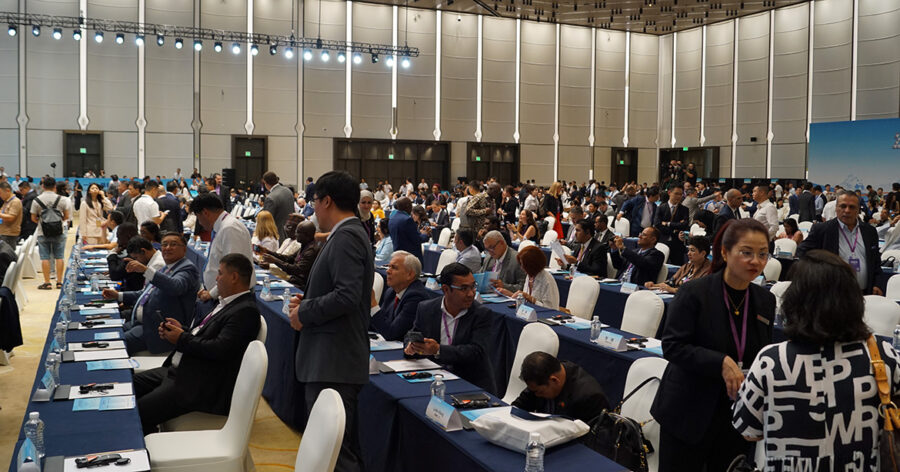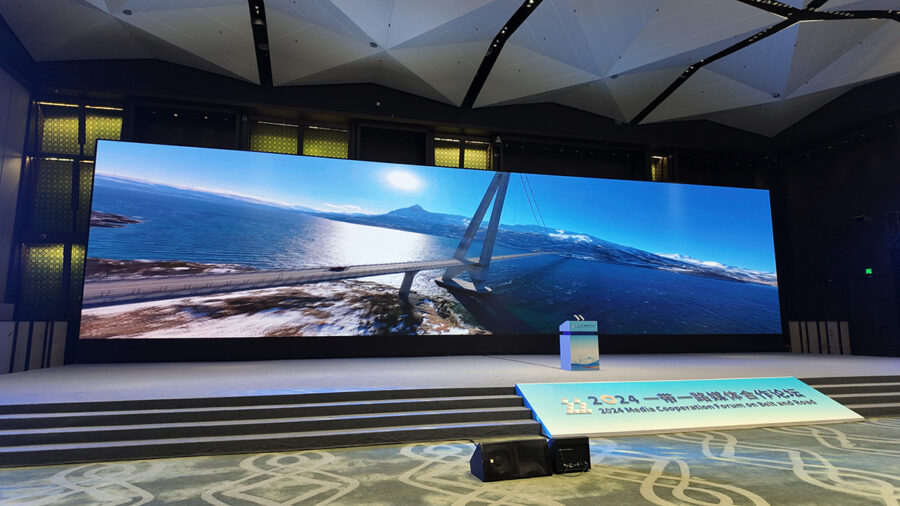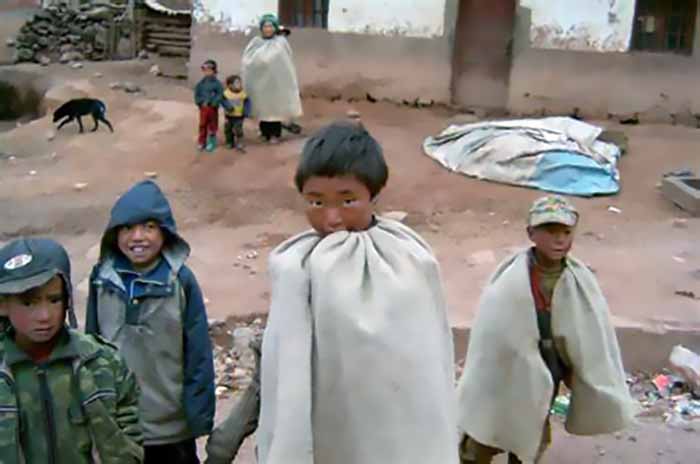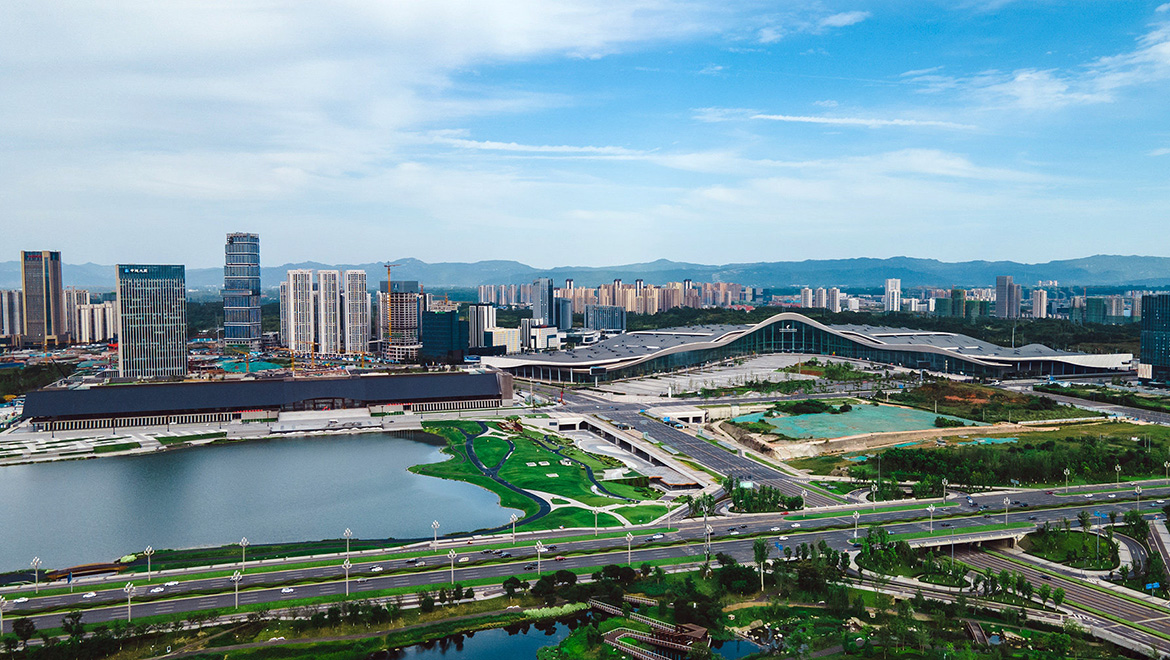China continues to build the society of the future in the context of what it calls – a Shared Global Future for Mankind – together with the countries that share the vision. The media plays an essential role in this endeavor. NewsVoice reports from a significant infrastructure and media conference in Chengdu, China.
By Torbjorn Sassersson, founder of NewsVoice
The Chinese drive to build a global welfare society seems unstoppable despite Western attempts to slow It down. The West, through bodies such as the [West] World Economic Forum, wants to see a different development. Two new world orders seem to compete: the West against the East and the Global South.
The older generations are leading the work in China, and the younger generations are being trained to be successful developers and heirs. When Western allies see how dedicated China is, they can easily understand why they would be concerned about being overtaken on the global stage.
Representatives of Chinese development are trying to reassure their Western counterparts, inviting them instead to participate in joint global growth with the countries of the Global South, BRICS+, and the Belt and Road infrastructure project.
Many are now wondering what kind of order there will be globally. Will the world experience two parallel world orders? A crucial success factor is likely to be which ‘order’ includes war and which is based on peace.

The 2024 Media Cooperation Forum on the Belt and Road Agenda conference has brought together 300 journalists from 70+ countries. A caravan of buses transported all the participants from the hotel to the Tianfu International Convention Centre, a huge and new conference facility in the Western China International Expo City, in Chengdu, a modern city of 8 million inhabitants.
These 300 journalists are in unique media positions from the Chinese perspective, as many work for free and independent media.

The Chinese leadership strongly believes in fair reporting on today’s China and its infrastructure projects that, through the Belt and Road Initiative (BRI), stretch tens of thousands of miles through China and into other countries, across oceans and mountains, over bridges, and across straits.
China wants the West to get involved in these development projects, which, according to the vision, can lift regions and entire continents to new popular, technological, environmental, industrial, and cultural levels. Media plays an important role here.
BRI representatives emphasize that BRI is not just about building megastructures for transport but about lifting entire regions out of poverty. China’s people know what poverty means, as they still have memories of bad times in the 20th century.
Through BRI-like projects, China has lifted its own country out of poverty, and that work continues until today.

Western media, however, have cast doubt on the BRI projects’ construction of maritime shipping lanes, railways, bridges, tunnels, and motorways. Some Western journalists have even described these routes as Chinese invasion structures, but they miss the point: they are not one-way from China to the West. They are bidirectional.
The Chinese idea of success, which is being physically realized at a rapid pace, is thus met in the West with a certain amount of negative publicity directed at China to slow down the development process, according to ministers from the government layers and representatives from, among others, the People’s Daily, which can be likened to a Swedish state-run television station or a leading Swedish daily newspaper with government financial support.
The People’s Daily is one of three organizers behind the giant event that brought together journalists from over 70 countries. NewsVoice is one of the few Scandinavian media that received and accepted the People’s Daily invitation. Other invited journalists from the major media channels in Scandinavia are not allowed to go to Chengdu by their management because China is boycotted.
Whether or not a Western newspaper believes in China’s intentions, it can be considered irrational not to send media representatives down. Doubt has instead placed press freedom in the West in a sealed box.
However, the People’s Daily, China’s leadership, and Western journalists in China (including NewsVoice) believe that communication with China and fact-based journalism can overcome the Western leadership’s doubts about China. That’s a win-win situation.
You can read more about our impressions in NewsVoice’s articles about today’s China and its visions. Then, you can form your own free opinion on whether Western leadership should cooperate with China, whether you should meet and talk to Chinese people, or even go to China to make up your mind.
By Torbjorn Sassersson, founder of NewsVoice
Read more China stories: Chengdu and Xinjiang
Related
- The Star (Malaysian channel): 2024 Media Cooperation Forum on Belt and Road held in Chengdu


